
Boost Your Revenue: Top SaaS Platforms to Resell Right Now!
In today’s digital age, SaaS has become a game-changer for businesses of all sizes. However, developing a SaaS platform from scratch can be daunting and resource-intensive, especially for those with extensive technical expertise. Enter white-label SaaS platforms, which offer entrepreneurs and software companies a unique opportunity to resell pre-built software solutions under their brand. This blog post will explore white-label software, the benefits of reselling SaaS platforms, and some of the most popular options.
What is white-label Software?
White-label software refers to a fully developed product or service created by one company and then rebranded and resold by another company as its own. The reseller can customize the software’s branding and user interface and add additional features or functionality to meet their specific needs or cater to their target market.
SaaS with a White Label:
In the context of SaaS, white-label solutions allow companies to resell cloud-based software applications without investing in the platform’s initial development or ongoing maintenance. This model provides a cost-effective and efficient way for businesses to offer cutting-edge software solutions to their customers while maintaining control over branding and pricing.
Types of white-label SaaS Software:
White-label SaaS platforms are available across various industries and business functions, including project management software, customer relationship management (CRM), e-commerce platforms, marketing automation, and more.
Project Management:
White-label SaaS solutions improve efficiency and productivity by streamlining task distribution, progress monitoring, and team member collaboration.
Customer Relationship Management (CRM):
White-label solutions centralize customer data, automate workflows, and improve client communication, enhancing customer satisfaction and loyalty.
E-commerce Platforms:
White-label SaaS software facilitates online sales, inventory management, and optimization of the shopping experience, driving revenue growth and market expansion.
Marketing Automation:
White-label solutions streamline campaigns, analyze performance metrics, and nurture leads effectively, boosting conversion rates and ROI.
White-label Solutions Advantages:
Faster Time-to-Market:
white-label SaaS software expedites product launches and market entry, providing businesses with a competitive edge in rapidly evolving industries.
Reduced Development Costs:
By eliminating the need for in-house development, white-label solutions save time and resources for building custom software from scratch.
Access to Expert Resources and Ongoing Support:
White-label SaaS providers offer specialized expertise and dedicated support teams, ensuring smooth implementation, training, and troubleshooting.
Scalability and Flexibility:
White-label solutions scale seamlessly to accommodate business growth and market demands, enabling businesses to adapt and thrive in dynamic environments.
Customization and Branding Opportunities:
Businesses can customize white-label software according to branding guidelines, user preferences, and unique requirements, reinforcing brand identity and enhancing user recognition. Additionally, white-label solutions can be branded with logos, color schemes, and other branding elements to enhance brand consistency and engagement.
Why do Software Firms Want to white-label Their Products?
Software firms often choose to white-label their products for several reasons, including:
Reaching new consumer segments and unexplored markets:
White labeling enables software companies to broaden their customer base and enter previously unexplored markets. Software companies can expand their product reach by collaborating with resellers or distributors with existing networks and contacts within particular industries or areas. Using this tactic, they can enter markets that would have been challenging to enter on their own, promoting growth and market share.
Generating additional revenue streams:
White labeling allows software firms to create additional revenue streams beyond their core business. By licensing their products to resellers or private label partners, software firms can earn recurring revenue through licensing fees or royalties. This diversification of revenue streams increases financial stability and enhances the business’s overall profitability.
Leveraging the expertise and resources of resellers:
Software companies can leverage their partners’ experience, resources, and industry knowledge by forming partnerships with resellers or distributors focusing on particular sectors or market segments. Resellers frequently have in-depth domain knowledge and are aware of their target market’s particular requirements and problems. Software companies can leverage their partners’ domain expertise and client base by white labeling their solutions, which can hasten market uptake and improve customer satisfaction.
Reducing marketing and sales efforts:
By utilizing their partners’ pre-existing sales infrastructure and marketing channels, white labeling enables software companies to optimize their marketing and sales endeavors. Resellers can drastically reduce software companies’ time and resources to market and sell their products because they frequently already have established sales teams, marketing campaigns, and distribution networks. With this cooperative strategy, software companies may concentrate on product development and innovation, leaving customer acquisition and revenue growth to their partners.
Popular SaaS Platforms to Resell:
Google Workspace (formerly G Suite)
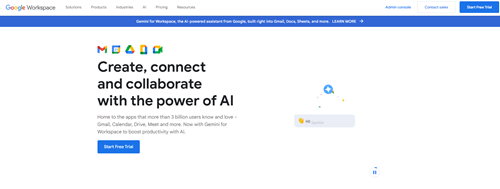
Google Workspace offers a range of productivity solutions to improve teamwork and expedite processes. With tools like Gmail, Google Drive, and Google Docs, teams may interact, share data, and work on papers in real-time from any location.
Microsoft 365
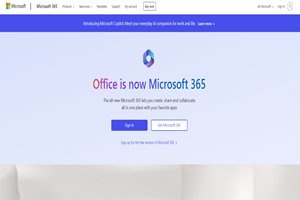
With Microsoft 365, companies can empower their employees and increase productivity with a full suite of tools. Microsoft 365 provides cloud-based services like Teams and Exchange Online and well-known apps like Word and Excel, facilitating easy communication and teamwork.
Salesforce
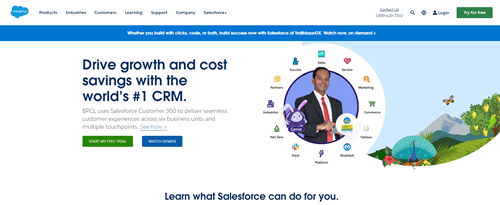
Salesforce is a leading CRM platform businesses trust to build stronger customer relationships worldwide. With Salesforce CRM, organizations can manage sales, marketing, and customer service operations in one integrated platform, driving revenue growth and customer satisfaction.
Amazon Web Services (AWS)
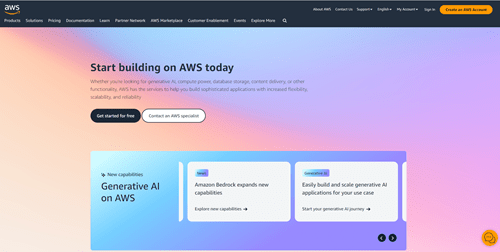
Amazon Web Service is a platform for cloud computing that provides a wide array of services to support corporate growth and innovation. AWS gives businesses the building pieces they need to run their operations in the cloud, deploy apps, and analyze data—from compute power to storage solutions.
HubSpot
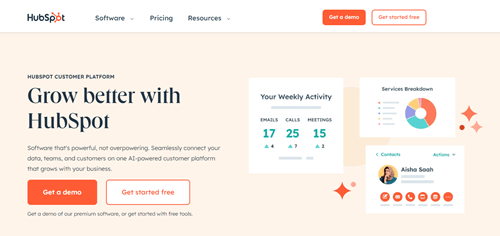
HubSpot is an inbound sales and marketing platform designed to help companies attract, engage, and delight customers. It enables businesses to personalize interactions and grow their operations by offering solutions for lead management, marketing automation, and customer support.
Adobe Creative Cloud

Adobe Creative Cloud is a comprehensive suite of creative tools and services for design, photography, and video production. From Photoshop and Illustrator to Premiere Pro and After Effects, Adobe Creative Cloud empowers creatives to bring their ideas to life across multiple mediums.
Dropbox Business

Dropbox Business is a secure file storage and collaboration platform trusted by teams to work seamlessly. With features like file syncing, sharing, and version history, Dropbox Business enables teams to stay organized and productive, whether in the office or on the go.
Zendesk
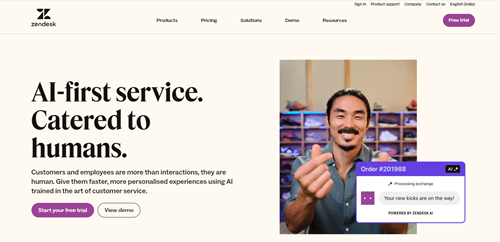
Zendesk is a customer service software platform that helps companies offer multichannel customer support. Support teams can provide great customer experiences using Zendesk’s ticketing systems, live chat, knowledge bases, and other resources.
Shopify
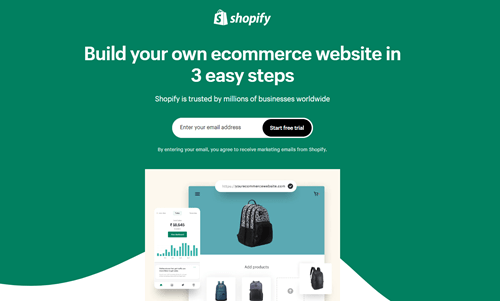
Shopify is an e-commerce platform that helps businesses sell products both online and off. Shopify’s customizable storefronts, secure payment processing, and integrated marketing tools simplify the process for entrepreneurs launching and growing an online store.
Zoom

Teams can connect and work from anywhere using Zoom, a video conference and collaboration platform. Zoom facilitates smooth meetings for remote teams and dispersed workforces with features like HD video and audio, screen sharing, and virtual backdrops.
DocuSign
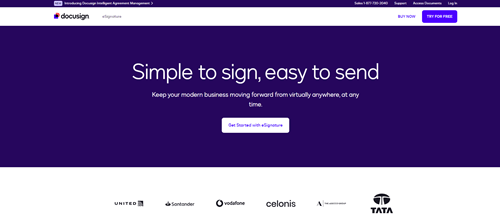
DocuSign revolutionizes the way agreements are prepared, signed, and managed digitally. With its eSignature solution and contract lifecycle management tools, DocuSign accelerates business processes, reduces paperwork, and ensures compliance with legal requirements, making it a vital tool for modern businesses.
Slack

Slack is not just a messaging app; it’s a collaboration hub that brings teams together no matter where they are. It streamlines communication and boosts workplace productivity efficiently. With features like project-specific channels, direct messaging, and seamless integration with other apps, Slack offers a comprehensive platform for team interaction.
QuickBooks Online

QuickBooks Online simplifies accounting for small businesses, freelancers, and self-employed professionals. From invoicing and expense tracking to payroll and tax preparation, QuickBooks Online helps users manage their finances efficiently, giving them more time to focus on growing their business.
Mailchimp
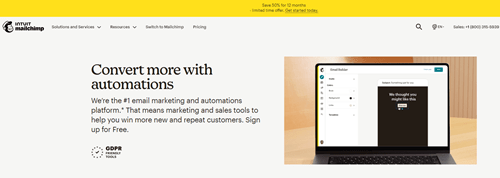
Mailchimp is a potent marketing automation tool That assists companies of all sizes in connecting with customers and building their brands. It gives marketers the tools to develop focused campaigns and increase engagement, including audience segmentation, email marketing, and marketing automation services.
Atlassian Suite (Jira, Confluence)
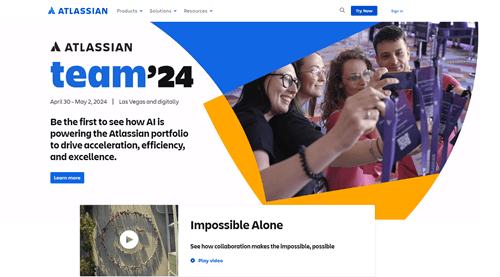
Atlassian Suite offers collaboration and development tools to help teams work better together. Jira simplifies project management and issue tracking, while Confluence provides a centralized platform for team collaboration and documentation, making teamwork more efficient and productive.
Adobe Sign

With Adobe Sign, getting electronic signatures is streamlined, and signing and sending documents securely is made simple from anywhere. Adobe Sign expedites corporate procedures, and streamlines document workflows with its interfaces with Adobe Acrobat and other products.
Box

Box is a cloud-based document management system that helps businesses collaborate, share, and save files safely. Teams can work together safely and share sensitive data using Box’s strong security features, compliance controls, and configurable permissions.
SAP Business One
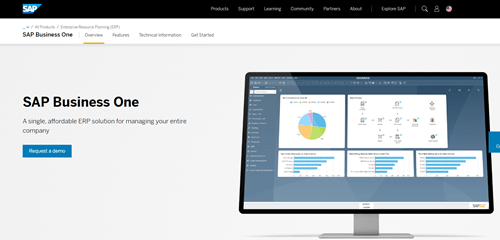
With SAP Business One, small and medium-sized enterprises can manage all aspects of their operations on a single, integrated platform. SAP Business One offers real-time insights and actionable data to support business growth in various areas, including accounting, inventory management, sales, and purchasing.
Workday

Workday is a cloud-based solution designed to streamline payroll and financial management, empowering businesses to oversee their employees and finances efficiently. With its comprehensive platform featuring modules for financial planning, payroll, benefits, and human resources, Workday enables businesses to optimize their resources and achieve success.
FAQs
What is the difference between white-label and custom software development?
Custom software development involves creating a solution from scratch according to particular needs, whereas white-label software is a pre-built solution that can be rebranded and resold. While proprietary software offers more flexibility and customization options tailored to specific business needs, white-label solutions are usually more affordable and quicker to adopt.
How much customization is possible with white-label SaaS platforms?
Platform-specific variations in customization levels are common, while most white-label systems support customization of features, user interface, and branding. Certain suppliers provide a greater degree of customization choices, such as the capacity to add new features or change the underlying code.
Are white-label SaaS platforms secure and compliant?
Reputable white-label SaaS suppliers prioritize security and compliance, ensuring their systems abide by rules and industry norms. To safeguard sensitive data and uphold compliance with pertinent laws and regulations, like GDPR or HIPAA, they use strong security measures, including data encryption, access controls, and frequent security audits.
How do pricing and revenue models work for white-label SaaS resellers?
Resellers typically pay the SaaS provider a monthly or annual fee and then set their customers’ pricing and revenue models. They may markup the subscription fee, offer tiered pricing plans, or bundle the SaaS product with other services to create value-added packages. The reseller’s revenue is generated from the difference between the wholesale price paid to the provider and the retail price charged to customers.
Can white-label SaaS platforms integrate with other systems and tools?
Most white-label SaaS platforms offer APIs and integration capabilities to connect with other software solutions and tools. This allows businesses to streamline workflows, share data between different systems, and automate processes. Common integrations include CRM systems, accounting software, marketing automation tools, and e-commerce platforms.
What kind of support do white-label SaaS providers offer?
Depending on the provider and the package chosen, support services may include technical assistance, training, updates, and ongoing maintenance. Providers typically offer support channels such as email, phone, and live chat, as well as self-service resources like knowledge bases, documentation, and community forums. Premium support plans may also be available for businesses requiring priority assistance or dedicated account management.
Conclusion
In conclusion, reselling Software as a Service (SaaS) platforms presents a promising avenue for businesses to diversify their offerings and generate additional revenue streams. Businesses can leverage existing infrastructure and expertise to provide valuable solutions without extensive development or maintenance by partnering with reputable SaaS providers and offering customers their platforms. Moreover, the flexibility and scalability of SaaS platforms make them attractive options for businesses looking to adapt to evolving market demands and customer needs. As the demand for cloud-based solutions continues to rise, reselling SaaS platforms holds the potential to drive growth, expand market reach, and enhance customer satisfaction. With careful planning, strategic partnerships, and a commitment to delivering value, businesses can capitalize on the opportunities presented by reselling SaaS platforms to achieve long-term success in the competitive marketplace.




